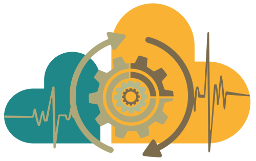Workflows
What is a Workflow?Filters
This workflow allows you to annotate a genome with Helixer and evaluate the quality of the annotation using BUSCO and Genome Annotation statistics. GFFRead is also used to predict protein sequences derived from this annotation, and BUSCO and OMArk are used to assess proteome quality.
Point-based Individual Tree Delineation from 3D LiDAR Point Cloud Data.
This module implements a lightweight and easy-to-use Point-based method for individual tree delineation from 3D point cloud data using pure C/C++.
The source code files are included in folder [TreeSeparation], which consists of a project generated from Visual Studio 2015. The CLASS for tree separation is named "FoxTree" and can be found in the respect FoxTree.h and FoxTree.cpp files.
Inupt
The ...
The workflow starts with selecting EH38E2924876 as the search term. Genomic position of provided unique regulatory element identifier was retrieved from CFDE Linked Data Hub[1]. A list of variants in the region of the regulatory element was retrieved from CFDE Linked Data Hub[1]. Variant/variant set associated allele specific epigenomic signatures were retrieved from CFDE LDH[5] based on Roadmap and ENTEx data[6], [4]. GTEx eQTL and sQTL evidence for the given variant(s) were retrieved from CFDE ...
Type: Playbook Workflow Builder Workflow
Creator: Playbook Partnership NIH CFDE
Submitter: Daniel Clarke
A file containing GEO Aging Signatures was first uploaded. The file containing GEO Aging Signatures was loaded as a gene signature. A file containing GTEx Aging Signatures was first uploaded. The file containing GTEx Aging Signatures was loaded as a gene signature. Significant genes were extracted from the GEO Aging Signatures. Significant genes were extracted from the GTEx Aging Signatures. Reversers and mimickers from over 1 million signatures were identified using SigCom LINCS[1]. Resolved ...
Type: Playbook Workflow Builder Workflow
Creator: Playbook Partnership NIH CFDE
Submitter: Daniel Clarke
A file was first uploaded. The file was parsed as a gene count matrix. Significantly over-expressed genes when compared to tissue expression in GTEx[1] were identified. RNA-seq-like LINCS L1000 Signatures[3] which mimick or reverse the the expression of IMP3 were visualized. Drugs which down-regulate the expression of IMP3 were identified from the RNA-seq-like LINCS L1000 Chemical Perturbagens[3]. Genes which down-regulate the expression of IMP3 were identified from the RNA-seq-like LINCS L1000 ...
Type: Playbook Workflow Builder Workflow
Creator: Playbook Partnership NIH CFDE
Submitter: Daniel Clarke
The workflow starts with selecting RPE as the search term. For the given gene ID (SYMBOL), StringDB PPI was extracted using their API[1]. For the Given StringDB PPI, the list of nodes (Gene Set) is generated. For the Given StringDB PPI, the list of nodes (GeneSet) is generated. Reversers and mimickers from over 1 million signatures were identified using SigCom LINCS[2]. The gene set was submitted to Enrichr[4]. The gene set was then searched in the Metabolomics Workbench[5] to identify relevant ...
Type: Playbook Workflow Builder Workflow
Creator: Playbook Partnership NIH CFDE
Submitter: Daniel Clarke
 Tests
Tests 


